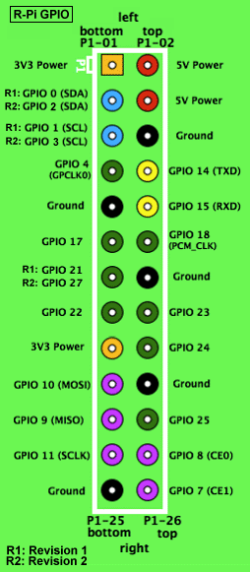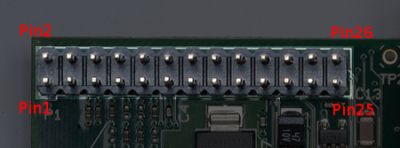Table of Contents
How to build a Pirate Radio?
Introduction
Hacking is fun. Hardware and software tinkering in common even more! That's what the Pirate Radio is about. Combining a some parts with a few lines of codes and off you go to be your own radio station.
Basically the Pirate Radio is not too much of magic as it may seem at a first glance. A Raspberry Pi, a few common electronic tinker parts and a software called PiFM, enable you to air whatever content you would like to over radio waves. Low in budget, short time in realization, wast effect(s).
May be Video Killed The Radio Star, however the Pirate Radio is a hackers' answer, on how to reanimate the Radio culture!
Parts / Tools List
Parts
| Item | Quantity |
|---|---|
| Raspberry Pi (Model A or B) | 1 |
| Micro USB cable or adapter (5V 1200 mA) | 1 |
| (Micro) SD Card (8GB recommended) | 1 |
| Female Jumper Wire Connector (2.54mm) | 1 |
| Heat Shrink Wire Cable | 1 |
Tools
| Item | Quantity |
|---|---|
| Soldering Iron Station | 1 |
| AWG 12 Cooper Wire | 1 |
Flash the SD card
Flashing the card with your favourite operating system is crucial for the radio to work, as you've probably imagined already. We recommend to install Arch Linux though. Why? Because, it's (1) light weighted, (2) well structured, (3) it has a very resourceful wiki and (4) is simply awesome.
Find the image file and installation instructions here.
PiFM
Log on to your system and download the PiFM software you need to transmit your sound!
<sxh bash> [user@hostname ~]$ mkdir pifm; cd pifm [user@hostname ~]$ wget –no-check-certificate https://download.c3l.lu/dlbase/scripts/Pifm.tar.gz </sxh>
Extract the content from its archive and enter the directory.
<sxh bash> [user@hostname ~]$ tar xfv Pifm.tar.gz </sxh>
Let's kick-off some waves!
<sxh bash; title:Playing a wav file> [user@hostname ~]$ sudo ./pifm sound.wav 103.3 22050 stereo </sxh>
<sxh bash; title:Playing a mp3 file> [user@hostname ~]$ ffmpeg -i sound.mp3 -f s16le -ar 22.05k -ac 1 - | sudo ./pifm - </sxh>
Increase the range


Tuning in!
References
[0] http://www.raspberrypi.org/
[1] http://makezine.com/projects/make-38-cameras-and-av/raspberry-pirate-radio/
[2] http://myhowtosandprojects.blogspot.com/2014/04/raspberry-pi-make-your-own-pirate-radio.html
[3]
[4] Frequency distribution and attribution plan of Luxembourg provided by Institut Luxembourgeois de Régulation (ILR)